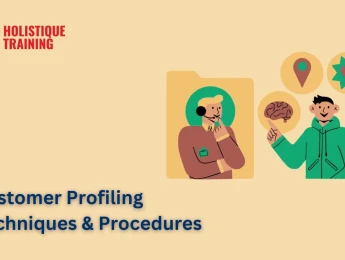Effective hospital operations management is vital in ensuring the success of any hospital. Many major decisions come under operations management, including finances, patient capacity and employee management. If any of these were to be lacking or not meet expectations, it is guaranteed that the hospital would be unable to provide adequate care for the patients, putting them at a potential detriment.
One of the most important aspects of hospital management is managing patients. There is a constant flow of patients within the hospital, and it is vital to constantly monitor the flow to ensure no singular department is becoming overburdened. There should be a strong focus on utilising methods, tools, and technologies to help manage patients and reduce overall wait times.
Furthermore, there should also be a focus on managing the employees as this will greatly impact overall performance. Doctors, nurses and other important medical staff are the face of the hospital, and it is vital to ensure they are meeting patients with confidence, competency, and an empathetic and trusting voice to help them provide the best care.
This course uses a variety of adult learning styles to aid full understanding and comprehension. Participants will review performance documents of real-world established hospitals to highlight key methods and techniques used to manage different aspects, including finance and patient capacity.
Participants can get involved in a variety of different learning methods and exercises to aid in their knowledge development. This combination of methods includes seminars, group discussions, video materials and individual activities. This ensures that the participants are granted multiple opportunities to fully develop their knowledge and practical skills relating to the taught content.
This course is designed for anyone within hospital management who wishes to develop their operations management knowledge. It would be most beneficial for:
- Operations Managers
- Senior Executives
- Finance Managers
- Pharmaceutical Directors
- Quality Assurance Managers
- Project Managers
- Communications Directors
- Hospital Engineering Managers
This course uses a practical and interactive training approach tailored to adult learning principles. It combines short, focused presentations with real-world hospital case studies and performance documents to illustrate key concepts. Participants will engage in group discussions, video-based learning, and individual exercises to apply tools and techniques in a realistic context. The programme also includes dedicated Q&A sessions to address specific challenges faced by attendees, ensuring they can relate the learning directly to their operational environment.
Day 5 of each course is reserved for a Q&A session, which may occur off-site. For 10-day courses, this also applies to day 10
Section 1 : Fundamentals of Hospital Operations Management
- Understanding what operations management is in relation to a hospital.
- Explaining the four major decision areas of operations management and their importance – capacity, purchasing and supply, process technology and improvement.
- Exploring the different classification of hospitals and how this may influence their patient demands and goals.
- Recognising the different divisions of hospitals and how these collaboratively contribute to overall success.
Section 2 : Patient Capacity
- The vitality of managing patient capacity within a hospital.
- Acknowledging the consequences and potential detriment on patient care if the hospital was to function over capacity.
- Analysing check-in and discharge data to understand the typical flow of patients in each department.
- Creating patient forecasts of demands to evaluate potential service adjustments to increase capacity and reduce wait times.
- Improve staffing wherever possible to compensate for patient capacity.
Section 3 : Purchasing, Supply and Finance Management
- Ensuring all departments have access to the necessary resources at all times.
- Managing finances and budget to allow for additional resources in times of crisis.
- Building strong relationships with stakeholders to acquire additional income – investments, donations, research grants and more.
- Investing in employees to maintain loyal employees and reduce overtime expenditures.
Section 4 : Team Management
- Encouraging high levels of customer service by building rapport with patients, developing trust and communicating in an empathic manner.
- Creating teams with varying skills, competencies, and knowledge to ensure balance throughout all projects, assignments, and tasks.
- Providing opportunities for additional coaching and training for employees to improve skills and knowledge.
- Offering rewards and incentives for outstanding work and performance.
Section 5 : Performance Improvement
- Exploring new technologies that are rising in popularity throughout the healthcare sector to understand their potential benefit.
- Planning, strategising, and implementing new technologies to improve tedious and time-consuming tasks.
- Incorporating secure electronic record-keeping systems to increase communication between departments and accessibility to patient information.
- Reducing waste throughout departments to focus on aspects that are contributing to success.
Upon successful completion of this training course, delegates will be awarded a Holistique Training Certificate of Completion. For those who attend and complete the online training course, a Holistique Training e-Certificate will be provided.
Holistique Training Certificates are accredited by the British Assessment Council (BAC) and The CPD Certification Service (CPD), and are certified under ISO 9001, ISO 21001, and ISO 29993 standards.
CPD credits for this course are granted by our Certificates and will be reflected on the Holistique Training Certificate of Completion. In accordance with the standards of The CPD Certification Service, one CPD credit is awarded per hour of course attendance. A maximum of 50 CPD credits can be claimed for any single course we currently offer.
- Course Code IND05-119
- Course Format Classroom, Online,
- Duration 5 days














